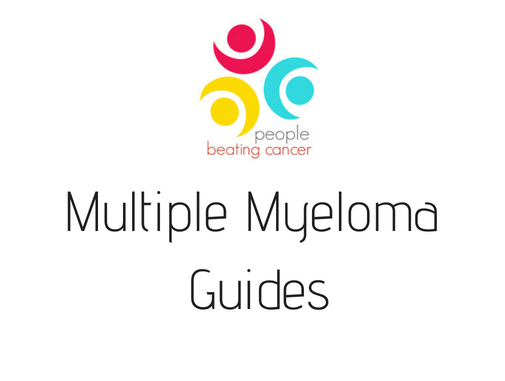Leave a Comment:
2 comments
[…] Multiple Myeloma Treatment- Neutropenia, ASCT, Antibiotics […]
Reply[…] Less is More-Antibiotics for Febrile Neutropenia in ASCT […]
Reply
Multiple Myeloma an incurable disease, but I have spent the last 25 years in remission using a blend of conventional oncology and evidence-based nutrition, supplementation, and lifestyle therapies from peer-reviewed studies that your oncologist probably hasn't told you about.
Click the orange button to the right to learn more about what you can start doing today.

Neutropenia aka a reduction in white blood cell counts is both a symptom of MM as well as common side effect of chemotherapy. White blood cells are needed to fight infections. More importantly, when undergoing a “hematopoietic stem-cell transplant” high dose chemoterapy is used increasing neutropenia to be more severe. While autologous stem cell transplants are pretty safe, according to the articles below infections after an ASCT can kill. Antibiotics are a multiple myeloma treatment with pros and cons.
The main issue for MMers undergoing auto SCT’s is neutropenia, infection and antibiotics. According to the last study linked below, “the investigators concluded that broad-spectrum antimicrobial therapy does not need to be continued until the neutrophil count recovers, but can be safely discontinued after 5 days in afebrile patients.”
You are better off taking a “less is more” approach according to the study linked and excerpted below.
“A condition marked by fever and a lower-than-normal number of neutrophils in the blood. A neutrophil is a type of white blood cell that helps fight infection. Having too few neutrophils increases the risk of infection.”
Please watch the video below to learn more about the evidence-based, integrative therapies to combat treatment side effects and enhance your chemotherapy.
David Emerson
“Neutropenia, pronounced noo-troh-PEE-nee-uh, is a decrease in the number of white blood cells. These cells are the body’s main defense against infection. Neutropenia is common after receiving chemotherapy and increases your risk for infections…”
“Myeloma causes profound immunodeficiency and recurrent, serious infections…
We aimed to assess whether patients newly diagnosed with myeloma benefit from antibiotic prophylaxis to prevent infection, and to investigate the effect on antibiotic-resistant organism carriage and health care-associated infections in patients with newly diagnosed myeloma…
Addition of prophylactic levofloxacin to active myeloma treatment during the first 12 weeks of therapy significantly reduced febrile episodes and deaths compared with placebo without increasing health care-associated infections. These results suggest that prophylactic levofloxacin could be used for patients with newly diagnosed myeloma undergoing anti-myeloma therapy…
“Infection is one of the main causes of early-treatment mortality in multiple myeloma (MM) patients during autologous stem cell transplantation (autoSCT).
In the present study, we sought to determine the incidence of, and risk factors for, infection during hospital stays after autoSCT. We retrospectively evaluated 324 autoSCT events that occurred in 285 MM patients between 2006 and 2015, and reviewed the clinical characteristics of patients and history of infections.
Sixty-eight infection events occurred, including:
…In conclusion, infection was the main cause of in-hospital mortality in patients who underwent autoSCT. Bacteremia was the most common type of microbiologically confirmed infection, and was associated with higher beta-2 microglobulin levels and previous bortezomib treatment.”
“Antibiotics and Neutropenia
Antibiotic treatment durations for febrile neutropenia, in the absence of confirmed infection, may be safely shortened compared with currently recommended durations in the United States, according to two recent studies.[1,2] European febrile neutropenia management guidelines[1] recommend discontinuing empirical antibiotics after 72 hours, irrespective of neutrophil count, if no infection is confirmed, the patient has been hemodynamically stable since admission, and the patient has been afebrile for 48 hours. In contrast, US febrile neutropenia guidelines[2,3] recommend continuing empirical antibiotics until neutrophil count recovery.
Aguilar-Guisado and colleagues[4] conducted an open-label, multicenter, randomized, controlled trial in adults with febrile neutropenia without a confirmed etiology. Patients with hematologic cancer or hematopoietic stem-cell transplant were included…
The investigators concluded that in this group of high-risk patients with hematologic cancer and febrile neutropenia, clinicians need not wait for the neutrophil count to normalize. Empirical antibiotics can be discontinued after 72 hours of apyrexia and clinical recovery.
Snyder and colleagues[5] performed a single-center, retrospective cohort study in patients with febrile neutropenia of unknown origin and previous allogeneic hematopoietic stem cell transplant. All patients were initiated on empirical broad-spectrum antibiotics consistent with institutional and national guidelines.
One cohort (n = 46) consisted of patients who were deescalated from empirical broad-spectrum antibiotics back to their original prophylactic antibiotics (eg, levofloxacin, ciprofloxacin, or cefdinir) while still neutropenic as long as they received a minimum of 5 days of empirical broad-spectrum antibiotics and remained afebrile for 48 hours. The other cohort (n = 74) consisted of patients whose empirical broad-spectrum antibiotics were continued until neutrophil count recovery.
The primary endpoint (rate of recurrent fever) was 15% in the deescalation group compared with 19% in the group whose antibiotics were continued (90% CI, -0.09 to 0.1629; P = .026). There were no differences between the cohorts in the need for antibiotic reescalation, intensive care admissions, bacteremia, or in-hospital mortality.
The investigators concluded that broad-spectrum antimicrobial therapy does not need to be continued until the neutrophil count recovers, but can be safely discontinued after 5 days in afebrile patients.
[…] Multiple Myeloma Treatment- Neutropenia, ASCT, Antibiotics […]
Reply[…] Less is More-Antibiotics for Febrile Neutropenia in ASCT […]
Reply